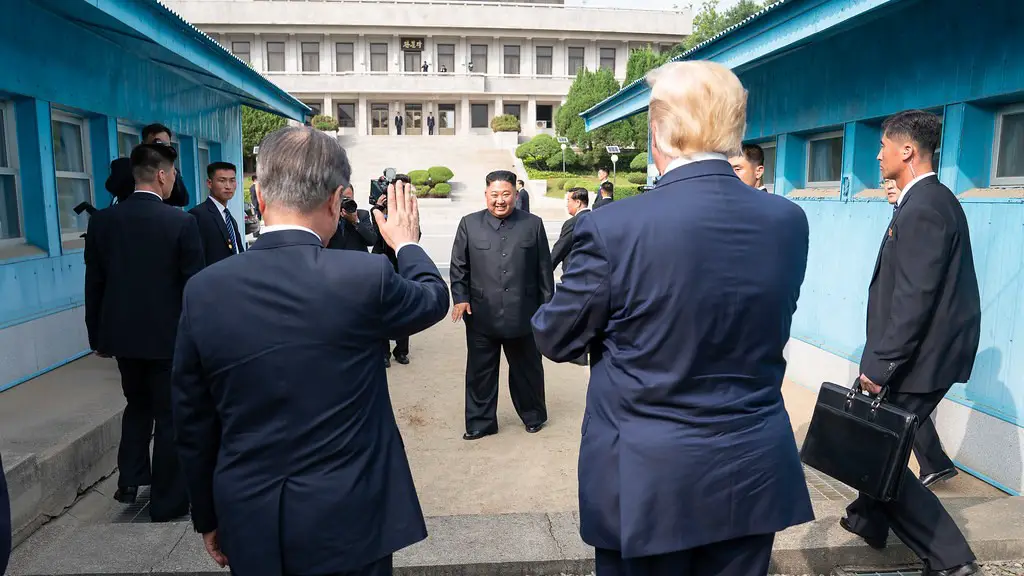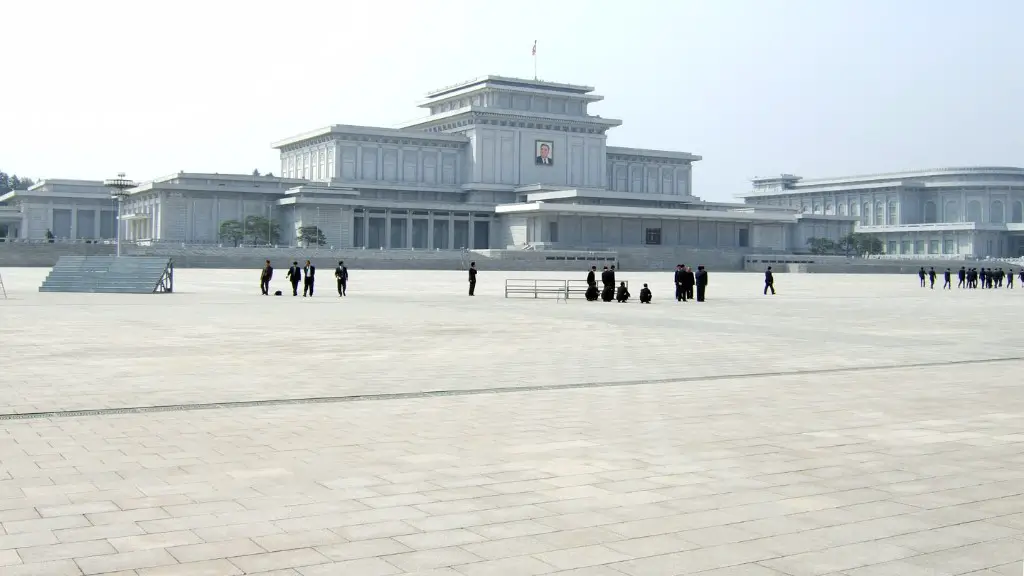Motivation Behind Trade With North Korea
China is North Korea’s closest and most influential ally, accounting for 90 percent of the Hermit Kingdom’s foreign trade. The motives for China to engage in trade with North Korea are mainly strategic. Economically, North Korea gives China access to natural resources, such as coal and mineral deposits. Secondly, North Korea provides an ideological and political ally, enabling China to keep the Korean peninsula divided and not allowing a strong U.S. ally to exist in the region. In addition, economic interaction with North Korea gives China a way of influencing North Korean policy.
Geographical Benefits
The geographical benefits of trading with North Korea are also important in creating deeper economic ties. The port at Rajin is a key area for trade with North Korea as it provides access to the ocean for North Korea’s manufactured goods. This port also allows for military supplies and weapons to be transported more easily. In addition, the joint Kaesong Industrializing Complex serves as a trade hub to promote economic integration between North and South Korea.
U.S.-China Trade War
In recent years, the U.S.-China trade war has further prompted China’s increased engagement with North Korea. This dynamic has been further encouraged by political events such as the COVID-19 pandemic, and China’s growing presence in global markets and international organisations. By strengthening economic ties with North Korea, China has increased its presence in the Asian region and become an even more influential global economic power.
Sanctions and Human Rights
Despite international criticism and the imposition of sanctions, China continues to engage in trade with North Korea and has made available various forms of assistance to help alleviate the effects of economic and political isolation on the latter. While some of the economic ties are ultimately beneficial to the North Korean people, these moves are often criticized due to the government’s human rights abuses.
Politico-Economic Ties
The politico-economic ties between China and North Korea are complex and have a wide-reaching impact on the region. On the one hand, China is a key partner for North Korea, providing vital assistance and resources for its burgeoning economy. On the other hand, North Korea allows China to further its geopolitical ambitions in the region, making it a more influential force in international politics.
Commercial Opportunities
In addition to having geopolitical significance, trading with North Korea presents numerous commercial opportunities. North Korea has substantial natural resources, including rare earth minerals, which are essential for manufacturing electronic components. These resources are attractive to foreign investors, as they can be obtained at a much lower cost than in other countries.
Security Implications
The security implications of trade with North Korea must also be considered carefully. While increased economic engagement with North Korea might help create a more stable environment and better relations, it could also embolden the regime to continue its aggressive policies.
Insights From Experts
Experts have also weighed in on the implications of China’s trade with North Korea. Jingdong Yuan, an international security specialist with the University of Sydney, believes that China’s trade with North Korea “serves as an external buffer against US-led sanctions and creates favorable conditions for Beijing to extend its influence in the region”.
Impact of Trade on The Region
It is difficult to predict the exact impact of China’s trade with North Korea on the region. While increased economic activity could bring much-needed investment and development to an otherwise impoverished country, it could also lead to an unbalanced relationship between the two countries and greater entanglement in regional conflicts.
Socio-economic Reform
The effects of trade with North Korea are also complex when it comes to social and economic reforms. Though increased exposure to the outside world may bring about a much-needed shift towards modernization and market-driven reforms, it is unclear whether North Korean citizens will be able to benefit from these changes.
Cultural Exchange
On the other hand, increased engagement between China and North Korea could facilitate cultural exchange and understanding between the two countries. By encouraging greater interaction between its citizens, North Korea may become more open to outside influences, potentially leading to a more liberal outlook on the world.
Ethical Considerations
The ethical considerations of trade with North Korea are also complex. While increased economic engagement may help alleviate humanitarian suffering, it could also perpetuate the oppressive regime and lead to further human rights abuses.
International Pressure
International pressure has been mounting on China to halt its economic dealings with North Korea. The United Nations has recently imposed a series of sanctions on North Korea over its human rights abuses and nuclear weapons program, and China has been at the forefront of implementing these measures.
Prospects for Change
Overall, the prospects for change in North Korea remain uncertain. While increased economic engagement with China may bring about some much-needed reforms, it is difficult to predict whether this will have a significant impact on the country in the long term.



